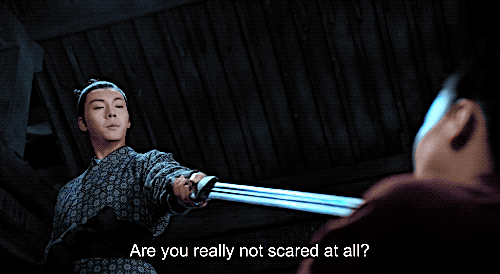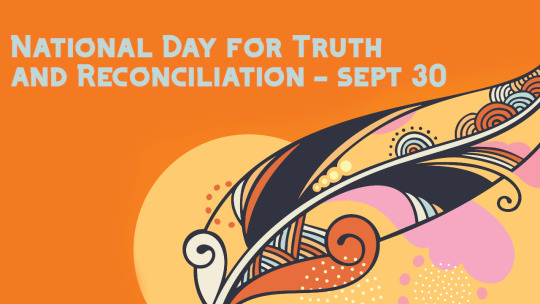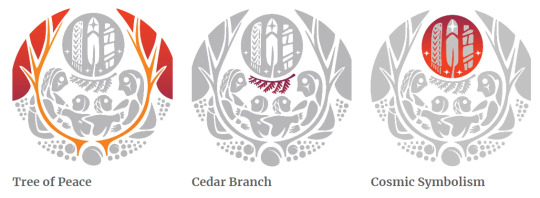#Miss Truth
Explore tagged Tumblr posts
Text
Best character surnamed: Ran
Come and vote for the best characters with the same surname!*
What does best mean? It's up to you! Whether you love them, are intrigued by their characters, love to hate them, or they're your '2 second blorbos whose personality you made up wholesale', these are all reasons for you to vote for your favs!
*note, the surnames are not exactly the same in all the cases, as often there will be a different character. I am, however, grouping them all together otherwise things got more complicated.
Propaganda is very welcome! If I’ve forgotten anyone, let me know in the notes.
This is part of a larger series of ‘best character with X surname’ polls’. The overview with ongoing polls, winners, and future polls can be found here
9 notes
·
View notes
Text
Happy International Womans Day!










#guardian#love in lost times#princess agents#novoland: eagle flag#the legends#legend of fuyao#bloody romance#miss truth#listening snow tower#Cinderella chef#chinese drama#c-drama#cdrama#gif
51 notes
·
View notes
Text
yet… the path to the truth is closer to your most precious room than ever before. will you be able to bury it this time?





#(this was inspired by mari's official 2021 birthday art)#omori#omori basil#omori spoilers#my art#i've been thinking about the implication basil remembers the truth earlier with each hard reset#i wanted to draw the areas how they might've looked before they were abandoned#hence the missing vines and white egrets etc
2K notes
·
View notes
Text






Who’s Afraid of Little Old Me? (2024) written & directed by Taylor Swift
So tell me everything is not about me …but what if it is?
#taylor swift#tswiftedit#tswiftgif#who's afraid of little old me?#fake movies are back!#the silent film I used was a gem of a picture directed by the wonderful William A. Wellman#You Never Knew Women#(1926)#the circus theme was so sad in this movie somehow it's perfect for this song#and for the last one I know it looks like technicolor but my intention was paying homage to Roger Corman :')#this song gives Roger Corman vibes#a weird crazy witch who lives in a castle and who's always angry#because she's been misunderstood all her life#and since Taylor's on a mashup spree lately I decided to mash it up with Mirrorball a little :p#hence the miss americana scene#TTPD#the tortured poets department#and! I know that's a male lion but let's just pretend it's a her#sad truth is mane just looks better I'm sorry
525 notes
·
View notes
Text

youtube
CBC video: Stolen Children | Residential School Survivors Speak Out
Since their first arrival in the “new world” of North America, a number of religious entities began the project of converting Indigenous Peoples to Christianity. This undertaking grew in structure and purpose, especially between 1831 and 1969, when the governing officials of early Canada joined with Roman Catholic, Anglican, Methodist, United, and Presbyterian churches to create and operate the residential school system. The last federally-run residential school, Gordon Indian residential School in Saskatchewan, closed in 1996. One common objective defined this period: the aggressive assimilation of Aboriginal peoples.
[ legacy of hope ]
#chromatic voice#national day for truth and reconciliation#first nations#turtle island#residential schools#every child matters#missing and murdered indigenous women#mmiwg2s#state violence#canadian content#settler terrorism#christianity as colonialism#orange shirt day
306 notes
·
View notes
Text

co-parenting<33
#screaming into the void#i just think that.#yeah.#my art#the @ is my insta#art#fanart#fanartist#sherlock#bbc sherlock#sherlock bbc#sherlock holmes#john watson#benedict cumberbatch#martin freeman#johnlock#could also be gen#live your truth#parentlock#rosie watson#mary morstan#warstan#i miss them sorry.#they see her in rosie and i fall to my knees#sherlock x john#sherlock holmes x john watson#sherlock holmes/john watson#sherlock/john
976 notes
·
View notes
Text

truth bc school trusted me with free will for my assignment and this is how I choose to use it
#fma#fullmetal alchemist#edward elric#fmab#fanart#anime#artists on tumblr#fma03#truth#manga#help I’m alive I promise last semester killed me#I missed everyone so much!!!
544 notes
·
View notes
Photo

sot stanky on the brain
#draws#south park#sp style#stan marsh#kyle broflovski#stick of truth#my god i miss DRAWING.. im still not done w school so im still busy
5K notes
·
View notes
Text
Here I am when I'm meant to be asleep, silently yelling TERRY!! because I just realized that the dwarf Goodmountain in The Truth is the literal definition of Gutenberg. ���🏻
#gnu terry pratchett#the truth#I don't know how I missed that when I read it#discworld#terry pratchett
326 notes
·
View notes
Text

Just Nyan and-






-Kariya
#I miss drawing them they're so fun to draw wwww#gggggggg got got ta work fast to draw my chilren www I miss themmmmmmmmmmmm#dol pc#dollya art#dol#dol fanart#Eburnean the Truth Seeker#Kariya the Alter Ego#degrees of lewdity#I don't usually make the gap so big between panels like this like you can see their actions kinda not really continuously there but#well there;s only so much I can do wirh that much time urggh#also ignore my typo okay I'm sleep deprived
337 notes
·
View notes
Note
BruHarvey time??

I don’t think resting his head on Bruce’s tits would fix him but I do think it’d make him feel better
#doodles#bruharvey#playing up the brucie act to get close to ur ex#give the public perception hes just a bimbo missing his college fling#when the truth is hes just a bimbo missing his college fling but in a sad way#bruce wayne#harvey dent
2K notes
·
View notes
Text
hc that there's a gala hosted on Jason's birthday to honour his memory, and every one of the Wayne kids is obviously required to attend. Jason, naturally, can't—being legally dead, and all—so he enjoys his night watching the security cameras with Babs. Popcorn in hand, he amusedly enjoys his siblings try to fumble their way through a whole gala centred around Jason, all while trying to pretend that he's still dead and they didn't talk to him literally a few hours prior.
Tim: Oh, I never got to officially meet Jason before he died, but from what I hear from Dick and Bruce, he was truly a great soul.
Jason, listening to this: He's totally tryin' not to explode 'cause I ate his pistachios earlier.
Babs: Tim likes pistachios?
Jason: Yea. They're his favourite, so I steal them all the time.
Babs, fondly amused: You know Tim's favourite snack?
Jason: Yeah, so I can steal it. Keep up, Barbie.
Babs: Sure.
Socialite: Dear, would you happen to have any stories about young Jason?
Dick, grinning: Absolutely! Just last w—I mean—the last time we went out shopping before he died. Yeah. That. Last time we went shopping he tripped on the escalator. Should've tied his shoelaces.
Jason: That happened last week.
The thing is, Dick has more free reign over answers, since he knew Jason before he died. Tim has a little bit of leeway, since he can chalk up any stories to small interactions he had with Jason as their neighbour. The rest of the kids, though? They have to keep their mouth shut, because if they slip up they'll be questions.
Things are fine until some of the socialites start 'discreetly' badmouthing Jason, saying that there shouldn't be such a big event happening for a glorified street rat. Jason himself isn't really affected by the comments, used to them already. He's pleasantly surprised when he sees every one of his siblings look absolutely livid on his behalf. He sees his siblings shut down every single rumour, even though they logically don't have to—rumours can't hurt the dead, after all. He watches as most of them defend him despite not being able to say anything about actually knowing him, and decides then and there; he has a call to make and paperwork to sign.
Time to defend himself—hanging out with and defending his siblings in public is just a bonus.
#dick definitely uses these galas to gush about jay without jay being able to stop him#“oh my baby brother jason”#“i miss him so much”#(and he winks at the camera)#he gets a little too emotional and truthful sometimes too#tim's eye twitching because he cant call jason a bitch a single time#damian having stories to tell that he cant because he'd “never met” jason#batfam#dc comics#batman#jason todd#tim drake#dick grayson
256 notes
·
View notes
Text
I hate when shows try to make me feel bad for a father. Grow up
#like im sorry you’re lonely? miss your kid? maybe you shouldn’t have impulse-moved to a different country#boo hoo#sorry to be a hater but i have to live my truth
3K notes
·
View notes
Text
NEW WORLD ORDER AND FREEMASONRY
#freemasonry#deep state#new world order#occultism#satanic rituals#world control#crimes against humanity#these people are evil#rituals#sacrifices#missing children#organ harvesting#power#fame#greed#dirty politics and corrupt politicians#wake up humanity#truth#please share#wwg1wga
304 notes
·
View notes
Text
- september 30th, national day for truth and reconciliation -




Survivors experienced horrific atrocities while prisoners in these institutions. It is important that this image show the love and strength that colonialism tried to steal from us. Despite genocide, we are still here – still fighting for justice and restitution, as true Warriors. - Dorene Bernard, Mi’kmaq Survivor who attended Shubenacadie Residential School

#chromatic voice#national day for truth and reconciliation#first nations#inuit#metis#missing and murdered indigenous women#mmiwcanada#residential schools#indigenous#turtle island#unceded land#survivor testimony#orange shirt day
1K notes
·
View notes
Text
Speaking of the social context of P&P and Austen in general, and also just literature of that era, I'm always interested in how things like precisely formulated hierarchies of precedence and tables of ranked social classes interact with the more complex and nuanced details of class-based status and consequence on a pragmatic day-to-day level. I remembered reading a social historian discussing the pragmatics of class wrt eighteenth-century English life many years ago and finally tracked down the source:
"In spite of the number of people who got their living from manufacture or trade, fundamentally it was a society in which the ownership of land alone conveyed social prestige and full political rights. ... The apex of this society was the nobility. In the eyes of the Law only members of the House of Lords, the peerage in the strictest use of the word, were a class apart, enjoying special privileges and composing one of the estates of the realm. Their families were commoners: even the eldest sons of peers could sit in the House of Commons. It was therefore in the social rather than in the legal sense of the word that English society was a class society. Before the law all English people except the peers were in theory equal. Legal concept and social practice were, however, very different. When men spoke of the nobility, they meant the sons and daughters, the brothers and sisters, the uncles and aunts and cousins of the peers. They were an extremely influential and wealthy group.
"The peers and their near relations almost monopolized high political office. From these great families came the wealthiest Church dignitaries, the higher ranks in the army and navy. Many of them found a career in law; some even did not disdain the money to be made in trade. What gave this class its particular importance in the political life of the day was the way in which it was organized on a basis of family and connection ... in eighteenth-century politics men rarely acted as isolated individuals. A man came into Parliament supported by his friends and relations who expected, in return for this support, that he would further their interests to the extent of his parliamentary influence.
"Next in both political and social importance came the gentry. Again it is not easy to define exactly who were covered by this term. The Law knew nothing of gentle birth but Society recognized it. Like the nobility this group too was as a class closely connected with land. Indeed, the border line between the two classes is at times almost impossible to define ... Often these men are described as the squirearchy, this term being used to cover the major landowning families in every county who were not connected by birth with the aristocracy. Between them and the local nobility there was often considerable jealousy. The country gentleman considered himself well qualified to manage the affairs of his county without aristocratic interference.
"...The next great layer in society is perhaps best described the contemporary term 'the Middling Sort'. As with all eighteenth-century groups it is difficult to draw a clear line of demarcation between them and their social superiors and inferiors. No economic line is possible, for a man with no pretensions to gentility might well be more prosperous than many a small squire. There was even on the fringe between the two classes some overlapping of activities ... The ambitious upstart who bought an estate and spent his income as a gentleman, might be either cold-shouldered by his better-born neighbours or treated by them with a certain contemptuous politeness. If however his daughters were presentable and well dowered, and if his sons received the education considered suitable for gentlemen, the next generation would see the obliteration of whatever distinction still remained. The solid mass of the middling sort had however no such aspirations, or considered them beyond their reach.
"...This term [the poor] was widely used to designate the great mass of the manual workers. Within their ranks differences of income and of outlook were as varied as those that characterized the middle class. Once again the line of demarcation is hard to draw..."
—Dorothy Marshall, Eighteenth Century England (29-34)
(There's plenty more interesting information in the full chapter, especially regarding "the poor," and the chapter itself is contracted from a lengthier version published earlier.)
#anghraine babbles#long post#dorothy marshall#eighteenth century england#austen blogging#eighteenth century blogging#also thinking about this in terms of elizabeth spending so much of pride and prejudice /acutely/ conscious of a social divide#between her family (as in the bennets and mr collins) and darcy's status - so her claim to equality with him w/ lady catherine is- well#not a dry sociological statement but an important character moment for elizabeth (and lady catherine!)#realistically darcy's lifestyle politics and interests ARE far more allied with ppl like the fitzwilliams than ppl like the bennets#and elizabeth is not at all ignorant of that - it's why she initially thinks he's too much of a great man to be interested in her#even before she knows of his close connections to literal nobility#and that is probably the more ... normative? understanding of their respective positions.#so her later claim to equality with him - in a way that forces ly c to acknowledge elizabeth's own status - is not a simple neutral truth#but weighted in a way that's important thematically and for elizabeth's development - something that the pure sociological take misses imo#anghraine's meta#austen fanwank#sorta
160 notes
·
View notes